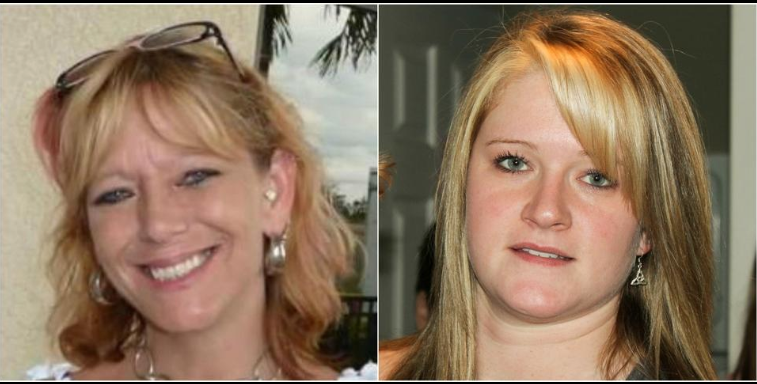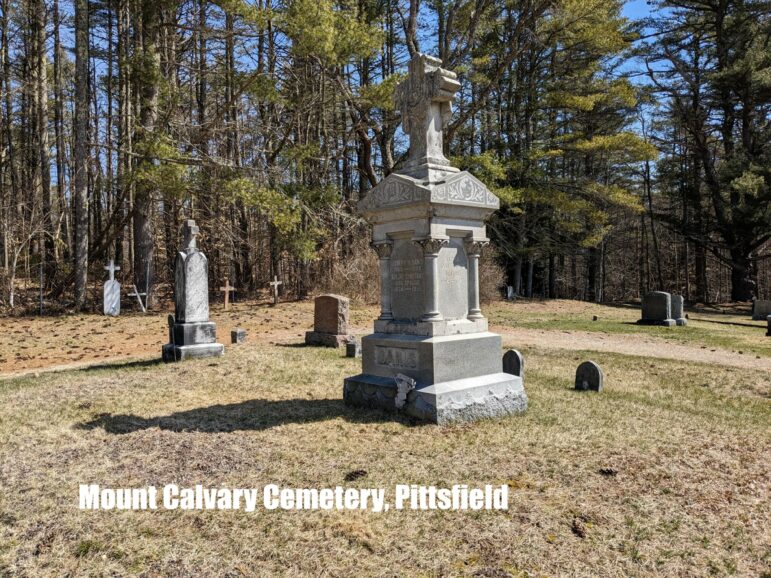By NANCY WEST, InDepthNH.org
DOVER – Timothy Verrill’s lawyers are pointing fingers at the Attorney General’s Office for failing to turn over exculpatory evidence that led to a mistrial in his double homicide trial last fall saying similar failures have occurred in three other recent homicide cases in Manchester and Concord.
In a response to the state’s objection filed on Thursday, Verrill’s lawyers, public defenders Julia Nye and Meredith Lugo, said the focus on the two state police investigators for failing to turn over the evidence is shifting to the Attorney General’s Office because of similar patterns by state prosecutors in the other three cases.
Verrill of Dover, who is accused of killing Christine Sullivan, 48, and Jenna Pellegrini, 32, in Farmington on Jan. 27, 2017, has been held without bail since his arrest. A hearing on his motion to dismiss is scheduled to begin Monday in Strafford County Superior Court.
Some of the evidence that was not turned over that was favorable to Verrill points to another individual as the killer, Nye and Lugo argue. Prosecutors are constitutionally obligated to turn over such evidence to the defense.
“Dismissal is warranted because the state has failed to provide the defense with material and exculpatory evidence, acting in bad faith and reckless disregard of its constitutional obligations,” the defense argued.
Attorney General Gordon MacDonald and others in his office agree that the discovery violations in Verrill’s case have been serious, according to court documents, but insist that they haven’t prejudiced Verrill to the point of such a drastic remedy, were not systemic and are not likely to happen again.
Dismissing criminal charges with prejudice means they can’t be brought forward again later.
“Although the acknowledged Discovery violations in this case have been serious, they were neither willful nor malicious, and were the product of unique and unprecedented negligent oversight rather than systematic dysfunction by either police or prosecutors,” according to the state’s objection filed June 8.
It lists MacDonald, Senior Assistant Attorney General Geoffrey Ward, Senior Assistant Attorney General Peter Hinckley and Assistant Attorney General Jesse O’Neill as representing the state.
“Moreover, the violations have not prejudiced the defendant to the extent that the only available recourse is dismissal with prejudice,” the state argued. “There are many available alternative and effective remedies and sanctions that the Court can impose short of such an extreme penalty, and that punishment is unnecessary as an effective deterrent for future instances of similar negligence – the occurrence of which is extremely unlikely with which to begin and will unduly harm the victims in this case.”
Lugo and Nye disagreed. This is exactly the kind of case that deserves dismissal with prejudice, especially in light of the new pleading about three other cases prosecuted by the Attorney General’s Office, they argued.
“The State’s claim that the discovery failures in this case were an aberration is belied by events in three recent homicide cases which evidence a pattern, if not a practice, of the Attorney General’s Office failing to comply with its constitutional obligations to provide timely and complete discovery,” Nye and Lugo wrote.
Senior Assistant Attorney General Hinckley said in an email: “We expect a full factual and legal record to be made at the hearing. It would be inappropriate for us to comment on evidence and argument at this time.”
Court filings can be viewed here: https://www.courts.state.nh.us/caseinfo/pdf/Verrill/index.htm
“Finally, it is necessary for this Court to make an independent determination because the focus has shifted from the actions of two investigators towards the actions of the prosecutors with respect to their discovery obligations, an issue that Judge (Steven) Houran did not consider or have occasion to address,” the defense wrote.
The motion was filed Thursday in response to the state’s 220-page objection to Verrill’s motion to dismiss with prejudice.
On June 15, the defense submitted a witness list for the hearing that includes six members of state police and attorney Lugo: Lt. Mark Hall, Sgt. Chris Huse, Sgt. Justin Rowe, Sgt. Steven Sloper, Lt. John Sonia and Lt. Brian Strong.
Three Cases
Lugo and Nye cited the case against Mark Heath of Manchester, who was convicted Nov. 6, 2019, of second-degree murder in Hillsborough North Superior Court. He was charged with the murder of his then-girlfriend’s toddler son and claimed the boy’s mother inflicted the injuries. Verrill’s lawyers said the mother, a key witness against Heath at trial, has another child who had been removed from her custody by DCYF and the Attorney General’s Office denied any involvement in the custody case.
“However, the day of jury selection (in October 2019), it became clear that a predecessor prosecutor from the Attorney General’s Office, as well as the lead investigator in the Heath murder prosecution, had several communications with DCYF about the custody arrangement,” Verrill’s defense wrote.
Then on the third day of trial, the Attorney General’s Office disclosed more emails. “In court, the lead prosecutor represented that she did not remember the email exchanges and explained that these emails were found in a different location than the ones previously produced,” Lugo and Nye wrote.
The second case involved Daswan Jette of Concord who was charged with murder and tried in Merrimack County Superior Court in January. Jette was charged with killing a young woman who was in a car with three of her friends, but the jury found him guilty of manslaughter. According to Verrill’s lawyers, police interviewed the three witnesses and provided the defense with audio statements, insisting they weren’t videotaped, and the videotape equipment wasn’t working. “At trial, on cross of the detective who conducted the interviews, defense counsel asked a question designed to confirm that the interviews were not videotaped. To everyone’s surprise, the detective said that they were. The trial had to be halted so that the videos could be produced for the defense and used at trial,” Lugo and Nye wrote.
The third case involves Richard Ellison who is charged with causing the death of a man after setting fire to his home in 2005 in Concord. The late-disclosed discovery included enhanced images from security cameras, surveillance footage, one-party recordings of the defendant, and jail calls of the primary state’s witness, according to the defense.
“The Attorney General took the position that it provided the defense what it knew about and that it is not their fault when new/additional evidence is uncovered,” the defense wrote.
Nye and Lugo wrote: “The Heath case involved the Manchester Police Department; the other two cases involved the Concord Police Department; the common denominator is the Attorney General’s Office. Any one of these cases is sufficient to contradict the state’s attempt to depict what occurred in this case as ‘unique and unprecedented.’”
The defense quoted from the 1963 Brady v. Maryland case that requires disclosure of exculpatory evidence: “As the United States Supreme Court has observed, ‘[s]ociety wins not only when the guilty are convicted but when criminal trials are fair; our system of the administration of justice suffers when any accused is treated unfairly.’”





